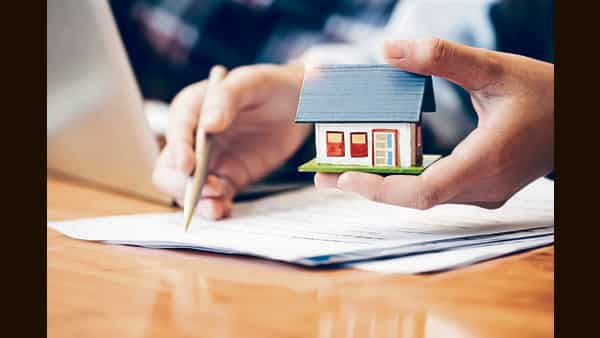[ad_1]
Have you sold a property recently after holding it for two years and been wondering how to save 20% of the capital gains in taxes? Tax laws have an answer to this: under Section 54, you can buy or construct another house property in India with the capital gains earned from the sale of the old house. However, this is not as simple a solution as one would want it to be. For, Section 54 puts in several conditions.
This article is limited to the tax implications of long-term capital gains, or LTCG, because short-term capital gains (STCG) on a house property are fully taxable at the applicable tax slabs. The only exemption taxpayers can get is if their income is below the taxable income threshold of ₹2.5 lakh ( ₹3 lakh in the case of senior citizens). In this case, the unutilized exemption can be deducted from the capital gains. For instance, if a taxpayer’s total income is ₹1 lakh in a year and the capital gain from the sale of the house is ₹5 lakh, the exemption that is allowed is ₹1.5 lakh ( ₹1 lakh deducted from ₹2.5 lakh). This means capital gains of ₹3.5 lakh from the sale of the house will be taxed accordingly.
Conditions apply
The exemption one can claim under section 54 is the lower of the capital gains made and the purchasing cost of the new property. Prakash Hegde, a Bangalore-based chartered accountant pointed out that section 54 does not say that the capital gains on which exemption is to be claimed should be necessarily utilized to buy the new house. “One may use the capital gains to, say, clear an old loan and take a new loan to purchase another property. That will still be eligible for exemption under section 54,” said Hegde.
The utility of capital gains is not limited to a home loan either, he added. “For instance, the taxpayer can fund the wedding of their child with the capital gains. They can then use funds obtained from some other source to buy a house and still claim exemption, as long as the other conditions under the section are met,” he said. Taxpayers need to note the following additional conditions to claim the benefit.
Type of property: Section 54 mandates that the capital gains should only be utilized to buy or construct a residential property and not a commercial one. As for land, it qualifies for the exemption when one constructs a house on it.
“The law doesn’t specify that a land can’t be purchased under section 54. It says that a house needs to be purchased. So, if the taxpayer buys a land and constructs a house on it, in this entire transaction, an amount equal to the capital gains can be claimed as exemption,” said Karan Batra, founder and managing partner, Chartered Club.
When a land is bought and a house is not constructed on it within the stipulated time, tax is to be paid on the LTCG.
Time frame: The tax laws provide a limited window within which the house should be bought to qualify for exemption. You must buy a new house within two years of selling the property. In the case of a new construction, it should be completed within three years.
If you have bought a new house even before selling the property whose capital gains needs to be utilized, the purchase should have been done within one year before the property is sold. In the case of construction, the date of starting the construction is irrelevant as long as it is completed within the stipulated three years after the property is sold, said Hegde. “The three-year window starts from the date of the transfer of the property whose capital gains have to be invested, and not from the date when construction started.”
Also, the new house should not be sold before three years, else you will need to pay tax later.
When gains are deposited in a bank account: Capital gains are taxed for the year in which the asset is sold. Though you get two years under section 54 to purchase a new house (three years to construct), the gains will be subjected to tax for the year in which the property is sold if they are lying in a bank account at the time of filing the income tax returns (ITR). You must park the capital gains in the Capital Gains Accounts Scheme (CGAS) before the relevant tax filing due date to save tax. Depositing money in CGAS shows your intention to claim benefit under Section 54.
If this is not done, you will need to pay tax at the applicable rate of 20% at the time of filing ITR and you can’t claim exemption under section 54 at a later date even if you buy a property within the stipulated two years window. Do note that you will still need to purchase the new house within the stipulated time frame of two years (three years for construction) from the time of sale of the property even after depositing money in a CGAS account. Else, gains will be taxed.
Download The Mint News App to get Daily Market Updates.
[ad_2]
Source link

